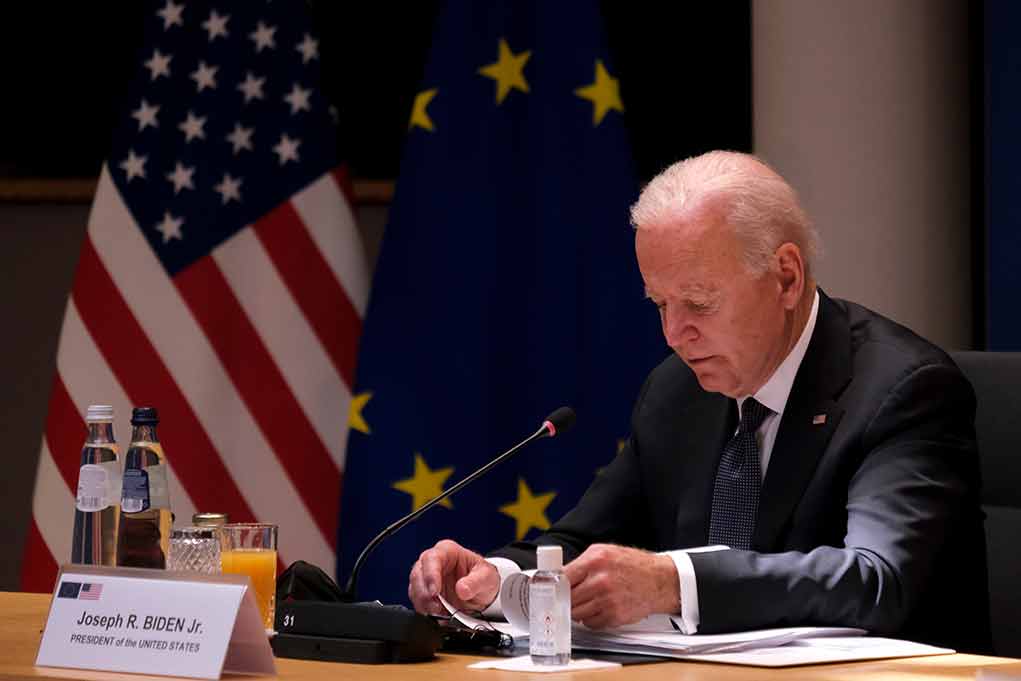
Senate Republicans boldly overrode the Government Accountability Office’s opinion to stop California’s radical electric vehicle mandate, exposing deep concerns about the watchdog agency’s partisan shift under Biden.
Key Takeaways
- Senate Republicans successfully voted 51-44 to overturn California’s strict vehicle emissions standards using the Congressional Review Act (CRA), despite GAO opposition.
- GOP leaders accused the GAO of overstepping its authority and showing partisan bias by attempting to block congressional authority over the Biden EPA’s waiver to California.
- The contested waiver would have allowed California to implement regulations forcing a phase-out of gas-powered vehicles by 2035, effectively creating a nationwide EV mandate.
- This procedural battle highlights a growing Republican concern that government watchdog agencies are becoming politicized tools for advancing leftist climate policies.
Republicans Challenge GAO’s Expanded Authority
In a decisive move reasserting congressional authority, Senate Republicans successfully voted to overturn Biden’s California emissions waiver despite unprecedented opposition from the Government Accountability Office. The 51-44 vote along party lines (with Democratic Sen.
Elissa Slotkin joining Republicans) struck down regulations that would have allowed California to impose strict emissions standards and phase out gas-powered cars by 2035. The procedural showdown exposed growing tensions over the GAO’s evolving role from a neutral government watchdog to what Republicans view as an activist agency interfering with legitimate congressional oversight.
“The Environmental Protection Agency submitted these rules as rules to Congress this year after being released by the Biden administration in its last days in office. That is a fact. Under the Congressional Review Act, that makes them subject to review. Period. End of story. The GAO has no veto power over the Senate. Not from the Congressional Review Act. Not under Senate Rules. Not under Senate precedent,” said Senate Majority Whip John Barrasso (R-Wyo.)
The conflict emerged when the GAO attempted to block the Senate from using the Congressional Review Act to overturn the California waiver, claiming it didn’t qualify as a rule. Senate Republicans, led by Majority Leader John Thune, rejected this assessment as an unprecedented and dangerous expansion of GAO authority. The standoff represents a critical moment in the relationship between Congress and its own watchdog agency, with Republicans arguing that allowing the GAO to dictate which regulations can be reviewed would fatally undermine legislative oversight of executive actions.
California’s Emissions Power Grab
At the heart of this procedural battle are California’s aggressive emissions regulations that would effectively force a national transition to electric vehicles. The Biden administration’s EPA granted California special permission to impose stricter standards than federal regulations, including plans to phase out gas-powered cars entirely by 2035. Republicans argue these standards would create a de facto national EV mandate, as automakers can’t afford to build different vehicles for different states. The economic impact would be devastating for American families already struggling with inflation, as EVs remain significantly more expensive than traditional vehicles.
“Senate Majority Leader John Thune, a South Dakota Republican who supported revoking the waivers, said in remarks Tuesday on the Senate floor that ‘the EPA has submitted the waivers to Congress as rules — which is all that Congress has ever needed to decide to consider something under the Congressional Review Act,'” said John Thune
California’s Democratic leadership responded with predictable outrage, with Governor Gavin Newsom and Attorney General Rob Bonta immediately announcing plans to sue the federal government. Their reaction highlights the state’s determination to impose its radical environmental agenda on the rest of the country, regardless of the economic consequences for working Americans. The auto industry, particularly the automotive aftermarket sector, strongly supported revoking the waivers, citing the substantial economic damage California’s regulations would cause.
Growing Evidence of Partisan Capture
The GAO’s unprecedented intervention in this process has raised serious questions about its impartiality. Established in 1921 as a nonpartisan agency to audit the federal government for waste and inefficiency, the GAO has traditionally maintained a reputation for political neutrality. However, Republican senators point to a troubling pattern of partisan behavior emerging under the Biden administration. The GAO’s attempt to shield California’s emissions standards from congressional review appears to be part of a larger trend of government agencies being weaponized to advance progressive climate policies.
“The question before the body is, is the GAO going to decide this or not?” said Senate Majority Leader John Thune (R-S.D.)
Senate Republicans have drawn parallels to previous partisan actions by the GAO, including its controversial report during Trump’s presidency claiming that withholding Ukraine funding violated the law – a report specifically requested by Democratic Senator Chris Van Hollen. The increasing politicization of supposedly neutral government watchdogs represents a serious threat to America’s system of checks and balances, allowing unelected bureaucrats to shield executive overreach from legitimate congressional oversight. By standing firm against the GAO’s overreach, Senate Republicans have taken an important step toward restoring proper constitutional boundaries.




